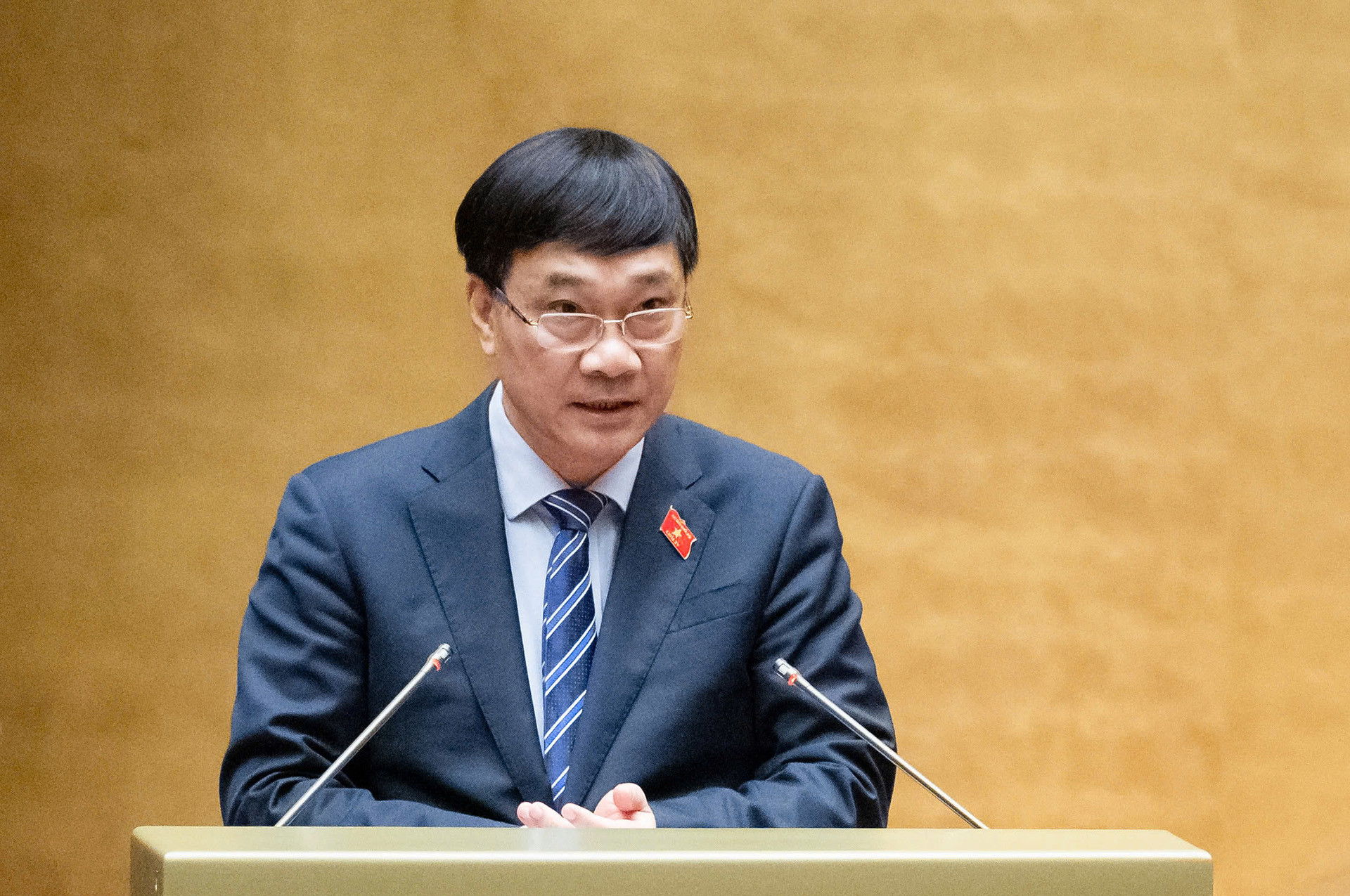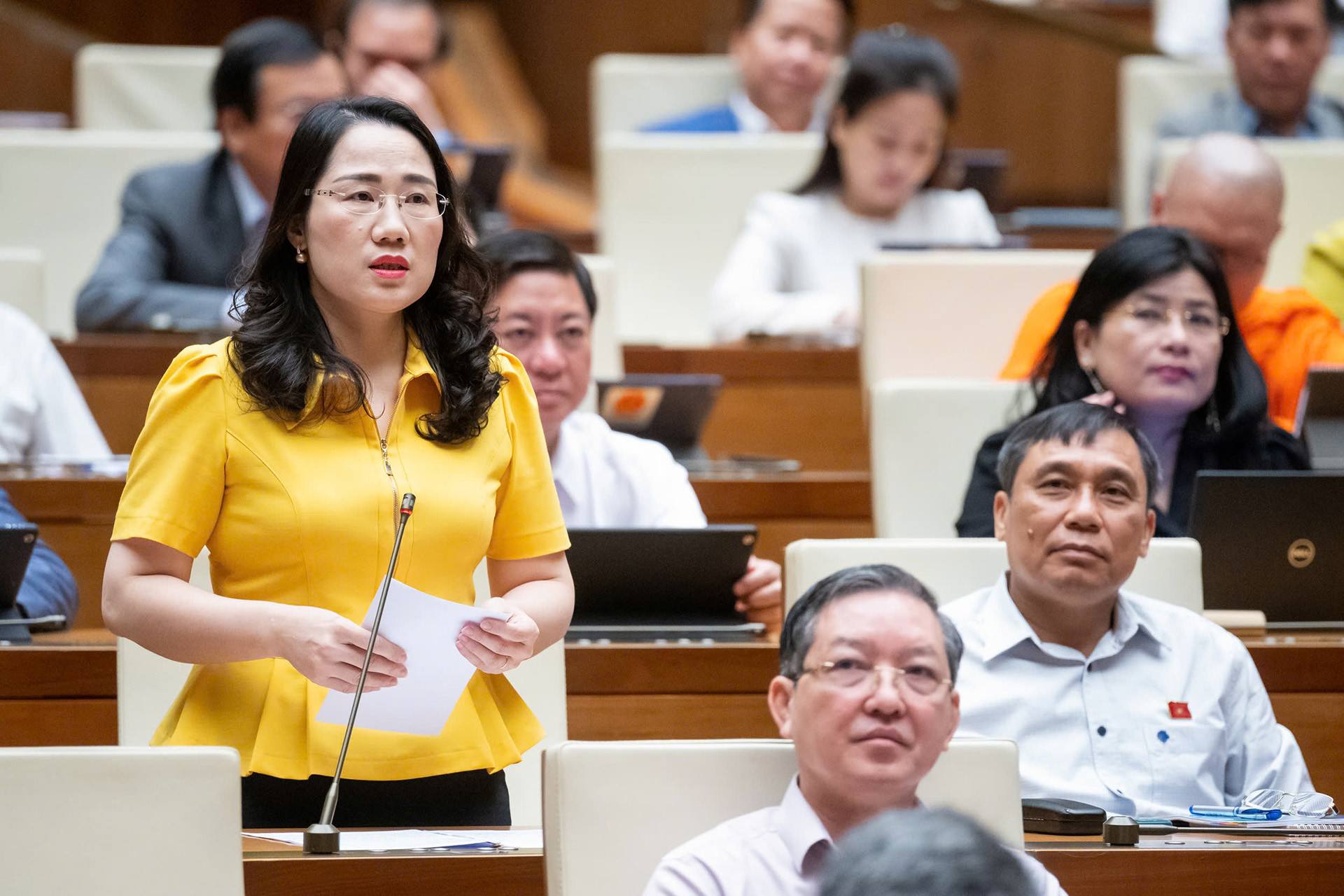During a recent parliamentary session, delegates voiced urgent concerns over speculative and inflated real estate pricing, arguing that it drives up prices and destabilizes the property market, making it increasingly difficult for genuine buyers to purchase homes.
On the morning of October 28, Vu Hong Thanh, Chairman of the National Assembly's Economic Committee, presented a report detailing the findings of a committee study on the enforcement of policies and laws in real estate management and social housing development from 2015 to 2023.

According to Thanh, real estate industry value has steadily increased over the reviewed period, from VND 83.247 trillion to VND 121.090 trillion, with an average growth rate of 2.72% per year. Currently, approximately 3,363 housing and urban development projects have been or are being implemented, covering more than 11,191 hectares of land.
The committee's study noted that accessing land for new real estate projects remains difficult, and businesses struggle to secure credit at manageable rates. Real estate companies typically rely on private bond issuance as a primary means of raising capital on the bond market.
The findings indicate that housing prices remain high relative to the average citizen’s income. Meanwhile, numerous urban areas remain underutilized, “mini” apartment buildings pose unresolved challenges, and many older complexes fail to meet modern living standards.
During the session, deputy Nguyen Thi Thuy from the Bac Kan delegation noted that real estate prices, particularly in major cities like Hanoi and Ho Chi Minh City, have increased sharply, and the recent signs of market recovery have given way to renewed instability.
Thuy raised concerns over speculative pricing, which creates misleading information in the market and drives up real estate prices to unrealistic levels. A representative from the Ministry of Construction had also previously commented on the irrational and extraordinary nature of recent housing price increases.

Thuy further argued that the current mismatch in supply and demand has led to a shortage of affordable apartments, which encourages manipulation since there are few alternatives in the same price range.
“The issues of speculative pricing and artificially high property prices have wide-reaching consequences. Genuine buyers are being priced out, while many with disposable income are parking their money in land for investment,” Thuy noted.
The Bac Kan representative proposed that the government introduce attractive policies for businesses to build affordable housing suited to the majority of working people's budgets and take robust steps to curb speculative activity.
Deputy Pham Van Hoa from the Dong Thap delegation added that the property market is currently experiencing a land price boom, with investors inflating prices substantially. Although demand for housing remains relatively low, many buyers are purchasing property as an investment or for rental income, with some reselling almost immediately for quick profits.
“The real estate market is a moving target, difficult to pin down. Prices fluctuate wildly from one day to the next,” Hoa observed, noting that while some investors profit handsomely, others face challenges or even legal troubles.
Hoa recommended that the state implement attractive policies and streamlined administrative procedures for real estate projects, particularly those focused on social housing. He expressed hope that the property market would realign with realistic values and end the speculative pricing patterns that have recently emerged.
Quang Phong